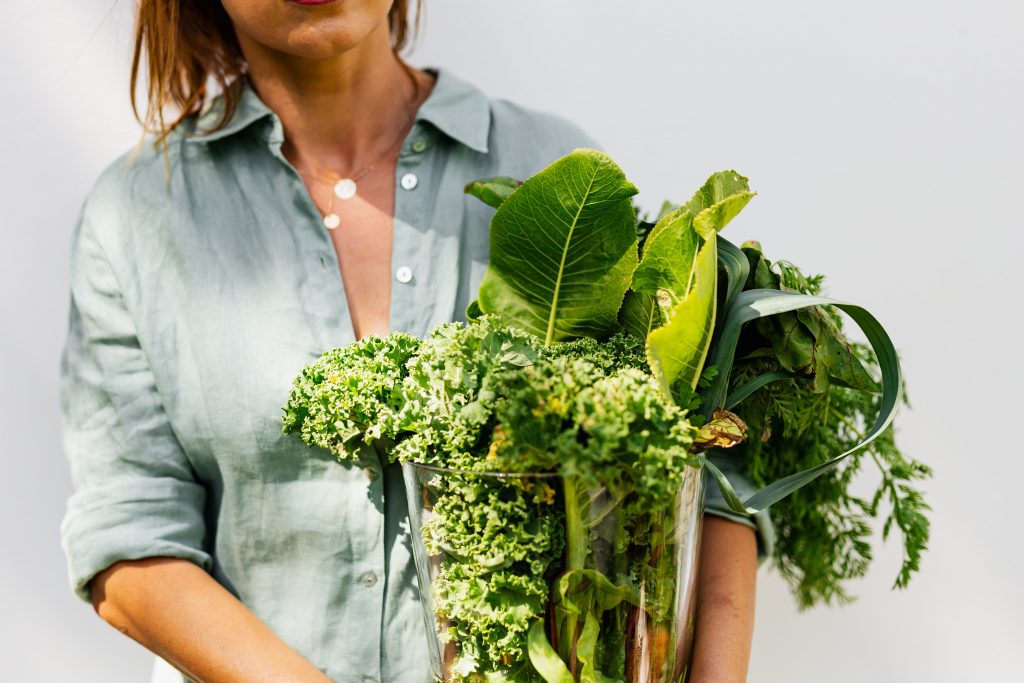Achieving a healthy pregnancy in your 40s can be a challenge for most women. But read on and I will explain the reasons why, and also what you can do to boost your fertility to improve your chances of a healthy pregnancy.
What are the chances?
Babies born with ovaries are born with all the egg cells they are ever going to have. The number of these eggs (also known as oocytes) are between 1 and 2 million eggs. Before puberty hits more than 70% of these have usually died off, leaving you with approximately 300,000 to 400,000 eggs during your reproductive years.
Usually during a menstrual cycle, one egg is selected as the dominant follicle while over 1,000 immature eggs die off, further reducing your egg count. There are also other factors that can reduce the number of eggs and fertility; such as your lifestyle, nutrition, hormones, medications and your general health.
In your 20s and early 30s there’s a 25% chance of achieving pregnancy. As you move into your late 30s your fertility will begin to decrease. The number of remaining eggs in your ovaries has lessened, there is a decrease in hormone levels, and also the quality of the egg reduces with age. When you reach your 40s you are likely to be down to your last 10% of egg supply, of which only a minority may be healthy enough to develop into a viable pregnancy. This makes it challenging to achieve a positive pregnancy result.
According to the Australian Institute of Health and Welfare, the average age of mothers has been rising over time. The reasons for this are many and varied and it’s not unusual to see women now conceiving in their late 30s and 40s.
The good news is, as long as your ovaries have healthy eggs, there’s still hope. Let’s take a look at what you can do to naturally to increase your fertility and chances of getting pregnant…
Pinpointing ovulation

Monitor your menstrual cycle and keep track of the details on a calendar. Count the first day of your period as day 1. This will help you identify how long your cycle is. A regular cycle is 28-30 days. Making ovulation (when the egg is being released from the ovaries) around day 12-16, which is your most fertile time.
However, many women’s menstrual cycles range from 24 to 35 days, which is likely to change the ovulation day. Some signs you can use to monitor your fertile time and pinpoint ovulation more accurately include:
- Mucous changes
An increase in mucous produced which appears stretchy and similar to egg white is a sign of ovulation. - Body temperature
Monitor your basal body temperature at the same time each day. You will notice a slightly raised temperature at time of ovulation caused by the body releasing the hormone progesterone. - Blood tests
Blood tests can help determine your progesterone levels, which is a hormone needed for ovulation, a regular menstrual cycle, egg production and fertilisation. If your progesterone levels are too low it is likely your body has not produced an egg.
Many women experience cycles that vary in length, or are absent all together. If this sounds familiar, you may have some underlying medical conditions which may be affecting your fertility.
As a Qualified Educator of Fertility Awareness, I can help you identify your most fertile time to increase your chances of conception, contact me for a more in depth assessment. You may also like to refer to my article, What Can A Naturopath Do for Infertility.
Super foods to boost fertility

Your diet and nutrition has a big impact on fertility in your 40s. It is essential that your meals are full of the recommended nutrients and vitamins that contribute to reproductive health and enhancing egg quality. My recommendation is to opt for organic and locally sourced produce where possible.
Be sure to put the following super foods on your shopping list:
- Green leafy veggies
Spinach, lettuce, rocket, kale, silver beet and leafy herbs such as coriander, parsley and mint. - Brightly coloured fruits
Wild blueberries, goji berries, red dragon fruit, kiwi, oranges and lemons. - Nuts & seeds
Walnuts, Brazil nuts, pepitas, chia, hemp seeds and quinoa. - Wholegrains
Oats, brown, red or wild rice, rye bread, spelt pasta.
How do I use these foods?
Food coaching is on top of my list when it comes to fertility support. I can talk you through how to utilise these foods to create tasty meals and snacks. Click here to book an appointment.
There are also Herbs That Naturally Increase Fertility that can be of benefit when incorporated into a tailored pregnancy plan.
Fertility health & IVF support
As a pregnancy naturopath my focus is the production of the highest quality egg and sperm in order to create the healthiest baby possible. If you are in your late 30s or 40s, and have been trying to conceive for 3 months without success, I recommend booking an appointment.
During our initial consultation, I will learn more about you and your health, and also your partner, to ensure you are as best prepared as you can be. Through various forms of physical assessments and analysis, I will develop an individualised health care plan, to help you achieve your health goals and pregnancy.
I also work alongside many patients who are undergoing IVF treatment to enhance positive outcomes. I can help support you and your body with natural therapies, which work in conjunction with IVF, to enhance the chances of achieving a healthy pregnancy. Click here to book an appointment today.
